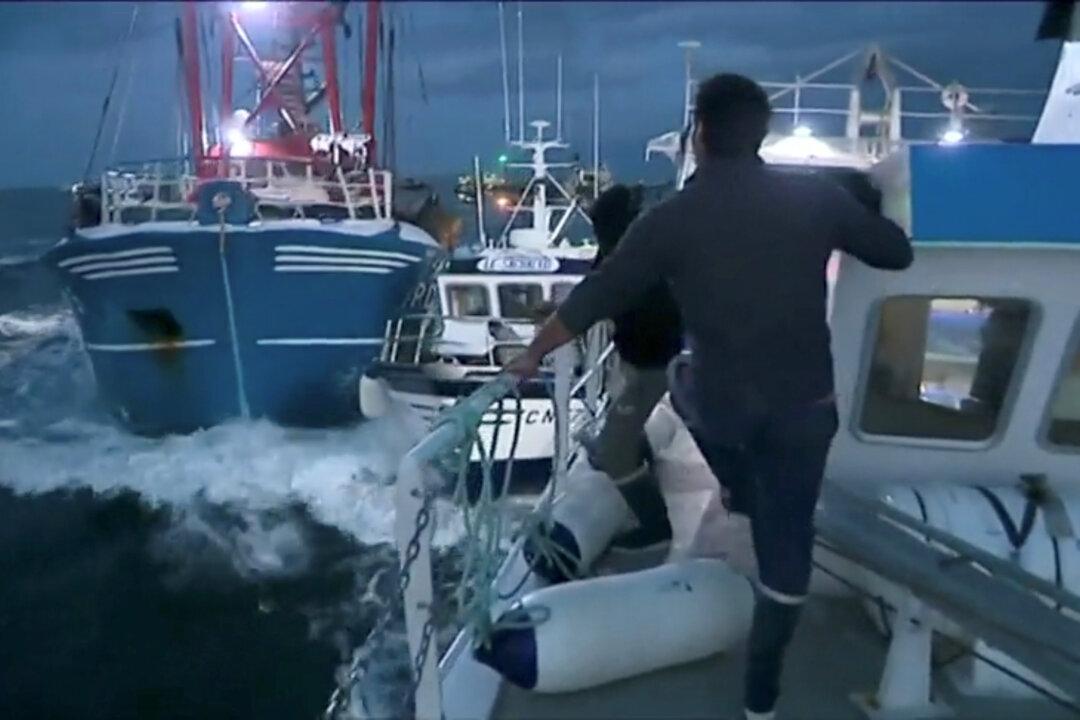LONDON—British and French fishermen have clashed in the English Channel over rights to fish for scallops, with stones thrown and some boats colliding in the escalating situation.
British boats are legally allowed to fish in the area, which is about 12 nautical miles off the coast of Normandy, near the Bay of Seine.




